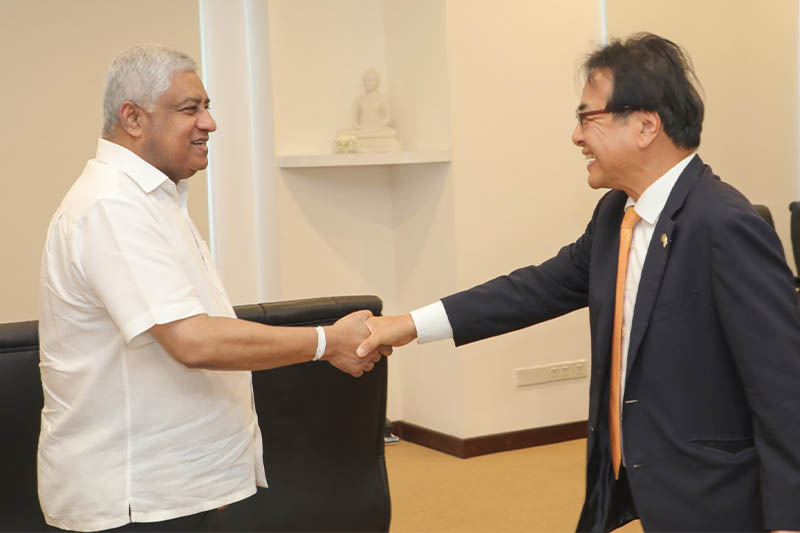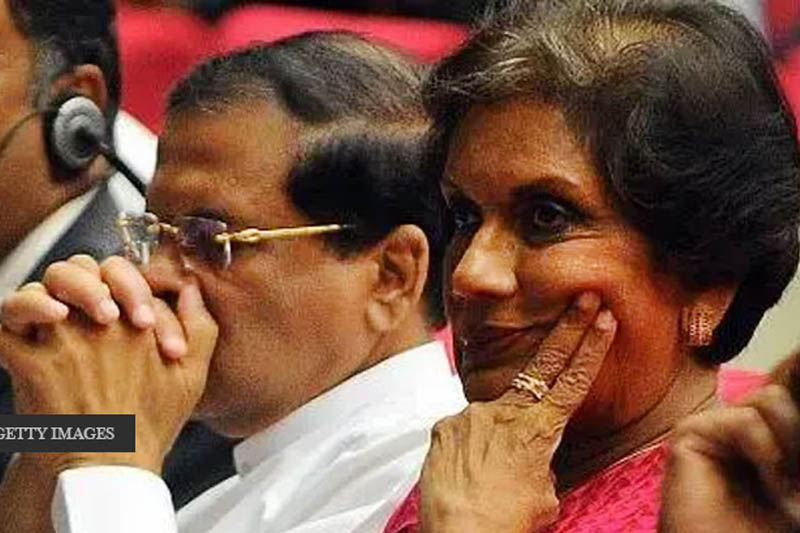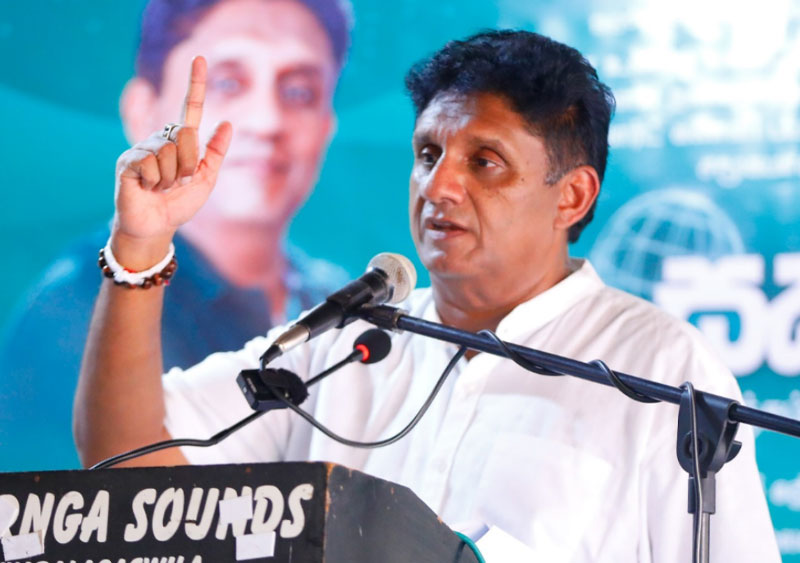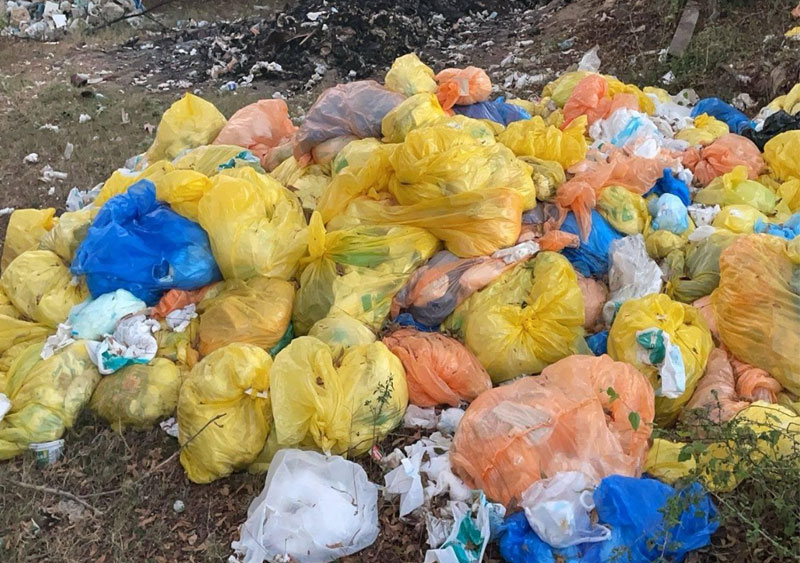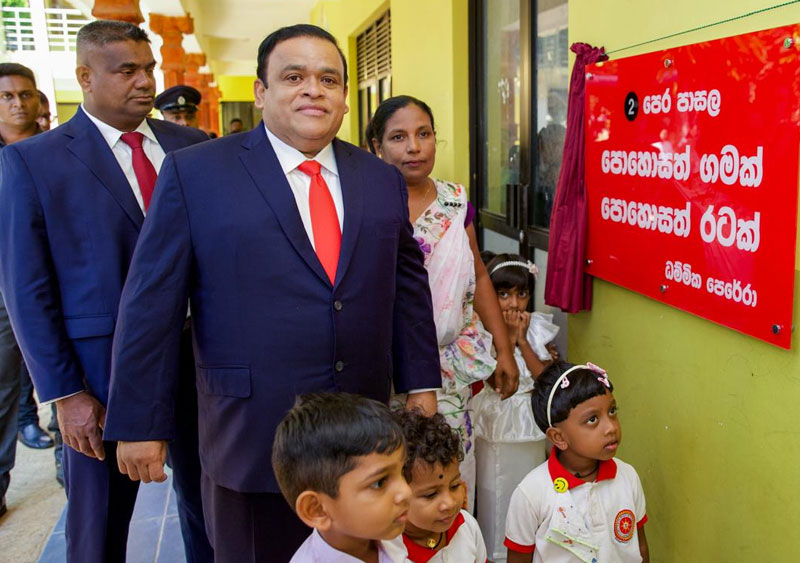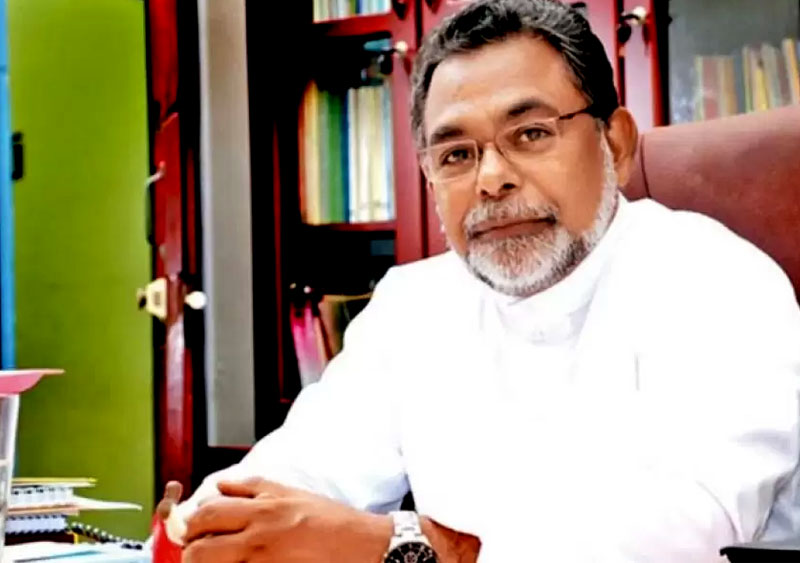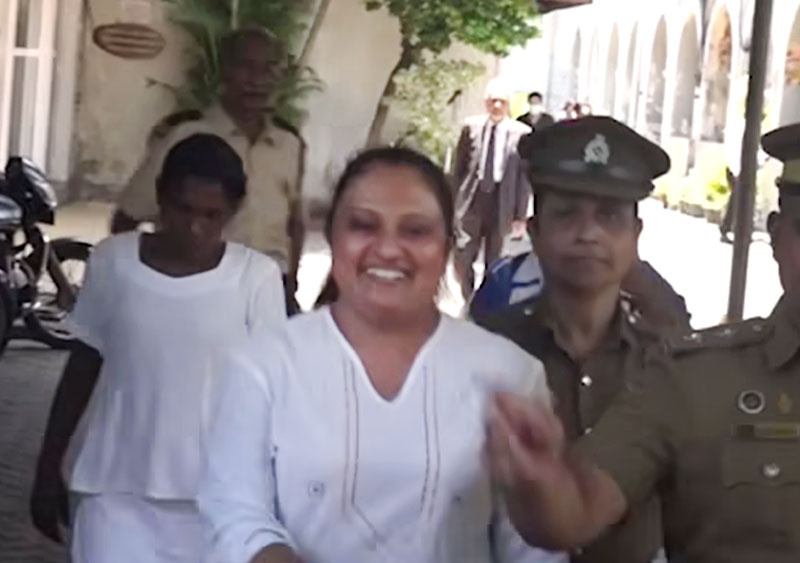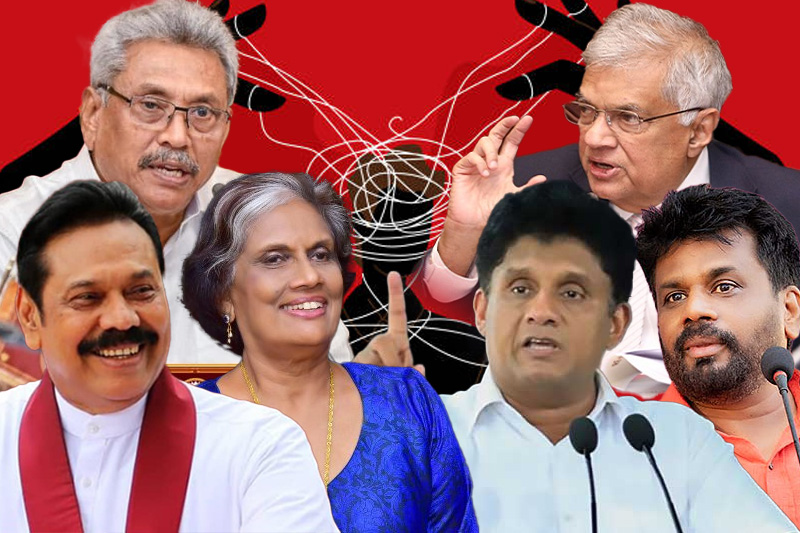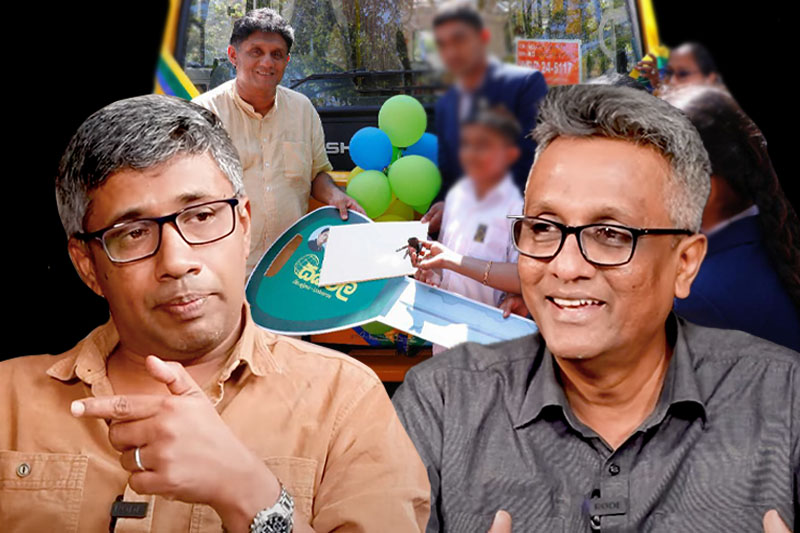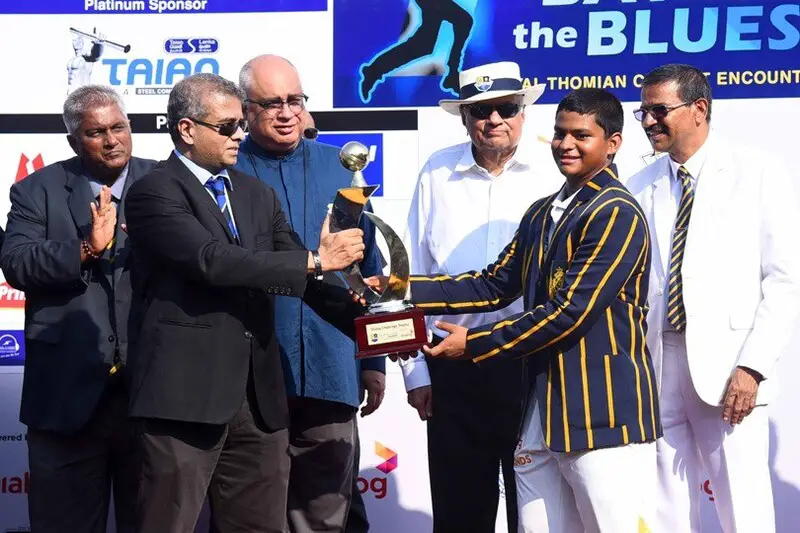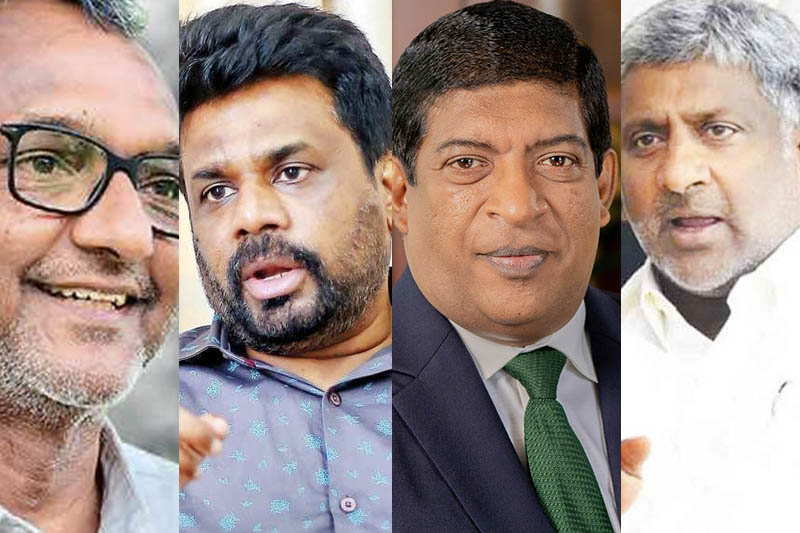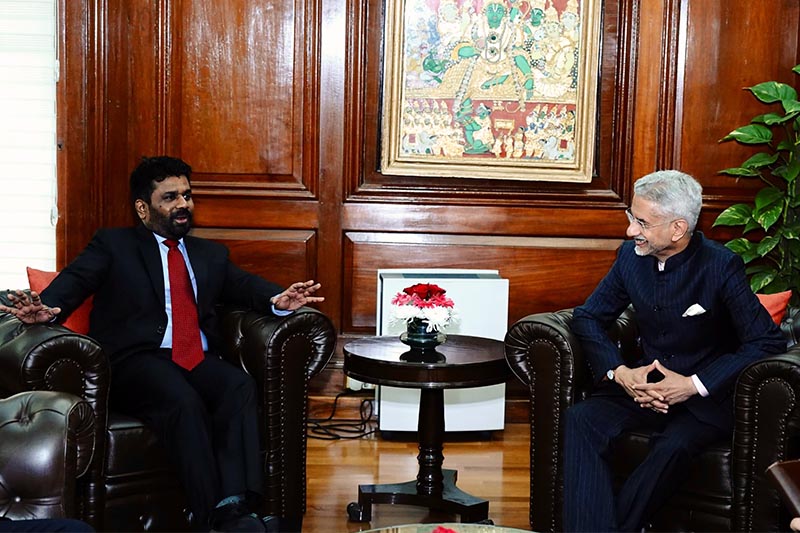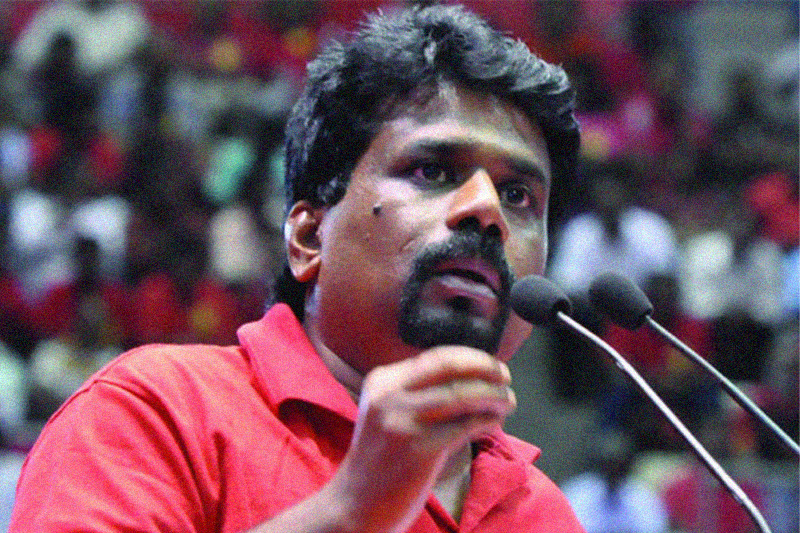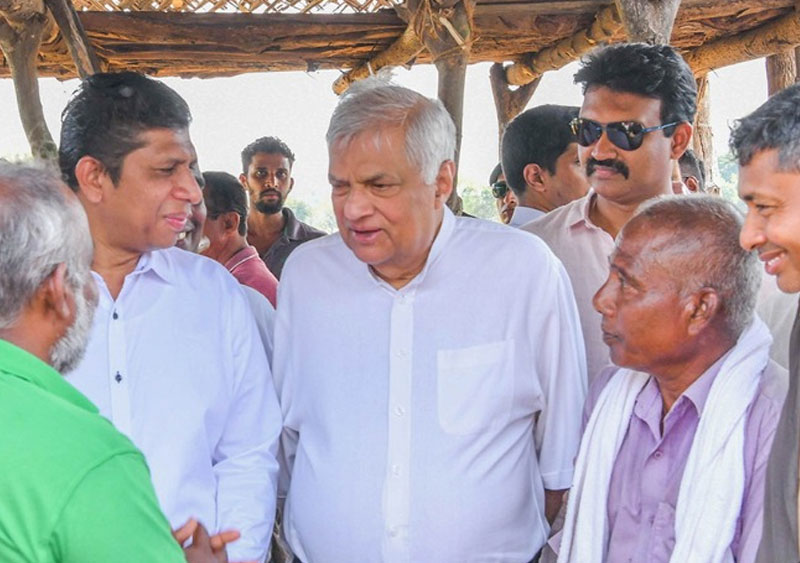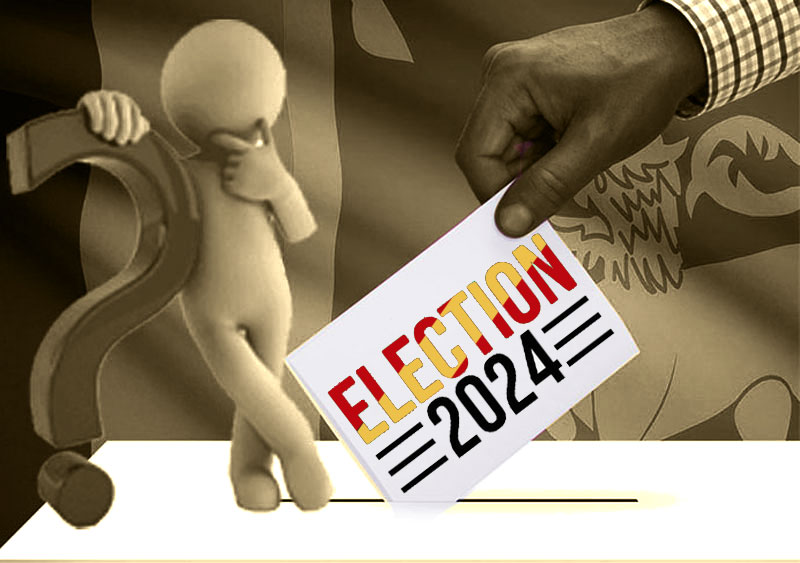Regime Security Project: Exposing a Verbose Political Foreign Secretary
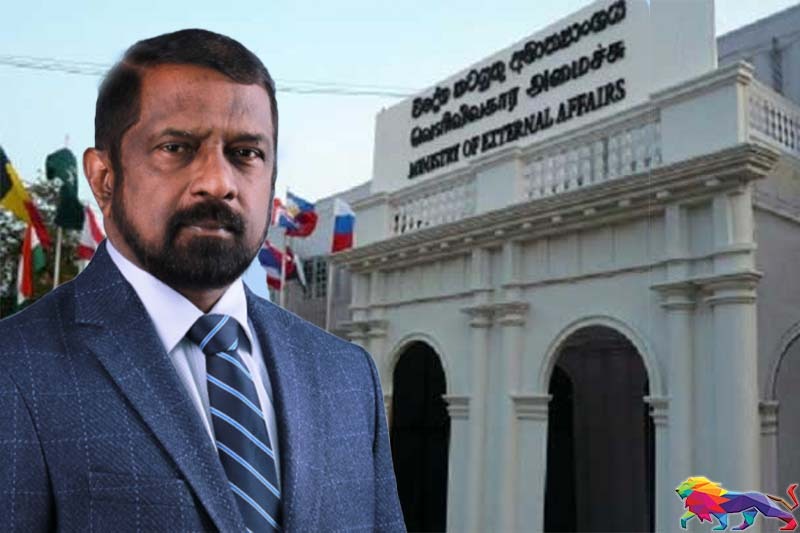
The role of a professional Foreign Secretary– public servant as opposed to a politician – is traditionally associated with being measured and articulate.
It is a position that requires considerable experience, intelligence, acumen, patience and apolitical credibility in the interest of the State. Foreign Secretary is the first professional focal point for balanced diplomatic engagement, based on mutual respect and mutual trust. Politicisation of this role carries grave consequences.
The current Foreign Secretary has a penchant for dramatic cheap talk-show publicity across multiple media. He engages in this new brand of sensational public diplomacy like an amateur village circus performer who is eager to entertain and impress. However, whether before the local gallery or on the international stage, he doesn’t fail to make a mockery of himself and his position. Only the ignorant, gullible and ill-informed would be impressed with his theatrics!
What’s behind the theatrical verbiage of this Foreign Secretary, who cannot differentiate between amateur convoluted academic commentary and professional diplomacy? There are two simple realities behind this phenomenon: political patronage factor and regime security intentions.
Political Patronage
Sri Lanka is accustomed to both career and politically appointed non-career Foreign Secretaries. Most political appointees, including an unscrupulous few from the Foreign Service itself, perform an intrinsically political role of serving their master's personal power interests above that of the State. Exceptions are rare.
This situation arises when the Foreign Secretary, as an individual, is personally beholden to his political master for his position which would otherwise be unattainable or unsustainable. Entirely divorced from the institutional culture of apolitical professionalism, he becomes a personal political servant who purveys his master's ruling logic to the world by fancy-dressing it. Such degenerates play little or no role in actual foreign policy formulation, as there is no “policy” to speak of other than fiats and diktats by the authoritarian master. In this political environment, "Admiral Professor" Jayanath Colombage has emerged as a truly unique catalyst accelerating the decay of professional diplomacy. How did he get there, and what is his role?
A career naval officer, in an expanding navy, he rose through the ranks to the pinnacle of command. All very well. Yet, a burning ambition for unprincipled social upward mobility pressed him to go further than what upright and dignified professionalism would take him. Hyper systemic politicisation provided the means to that end.
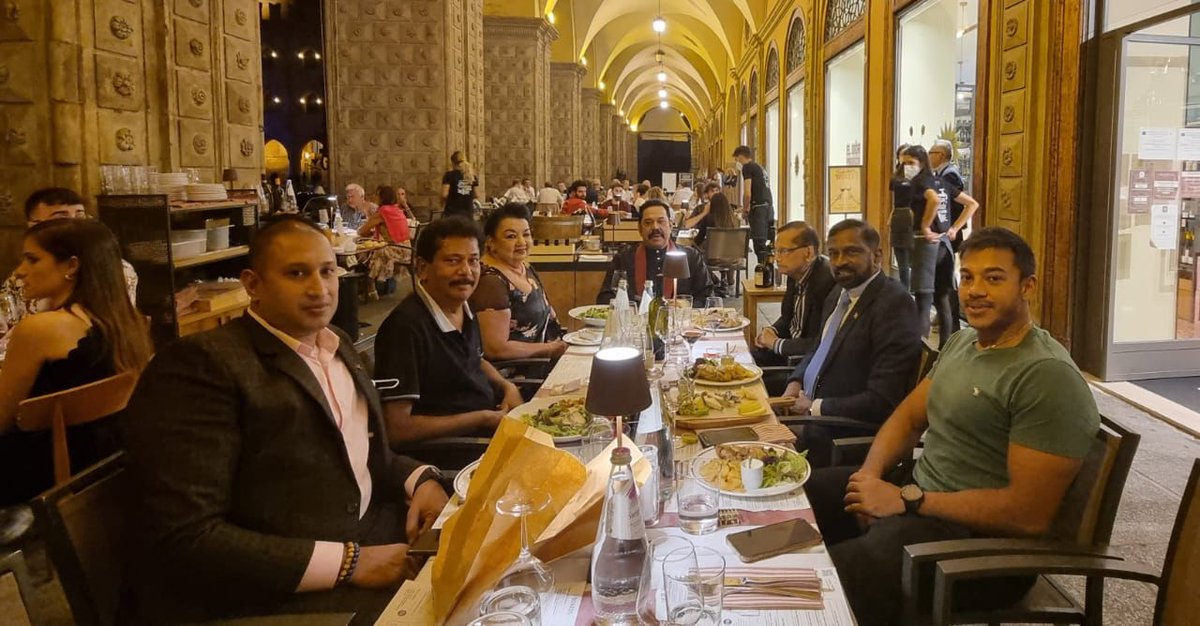
Foreign Secretary flanked by Foreign Minister Prof. G.L. Peiris and PM's Chief of Staff Yoshitha Rajapaksa during Mahinda Rajapaksa's recent visit to Italy.
Colombage was one of the navy commanders who looked after the personal interests of Mahinda Rajapaksa's second son and nephew; both benefited immensely from the navy in contravention of rules/procedures. He was implicated in a controversial floating armoury case, along with the then Defence Secretary who is the current President – involving a crony private security firm – only to be acquitted on a technicality under strange circumstances. He was also counted on for keeping a lid on grave human rights violations involving the navy. In an unprecedented move, he was even appointed as Chairman of the Shipping Corporation while serving as Navy Commander.
With eyes firmly set on political patronage, post-retirement, Colombage went on to refashion himself as a pseudo-intellectual and International Relations "expert." The Kotelawala Defence University (KDU) – which is being transformed into an expansive domain for breeding regime supporters, civil and military, with dubious qualifications while compromising its traditional role of professional military education – came in handy to obtain a PhD/Professorship. Even in that context, he turned out to be a unique candidate/recipient as he was responsible for the management and regulation of that very institution as Navy Commander/Board Member prior to retirement. This speaks volumes about "homegrown" models and solutions that he touts on behalf of the regime.
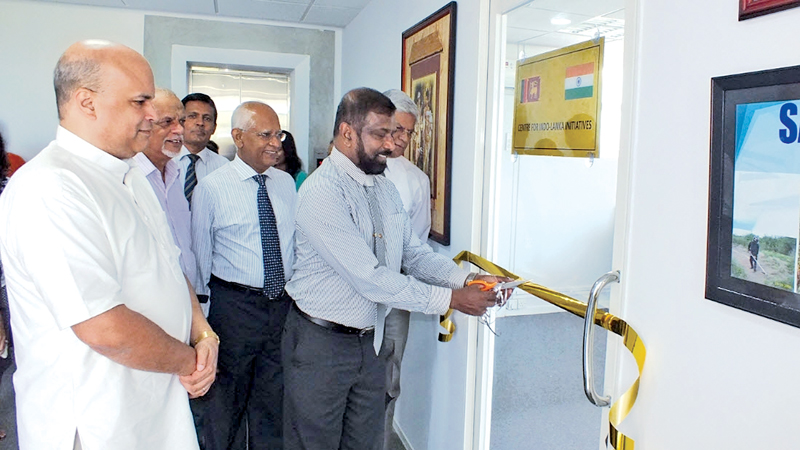
Admiral Jayanath Colombage, Director of the Pathfinder Foundation's Centre for Indo-Lanka Initiatives (CILI), ceremonially declared open the new centre in December, 2017 while Milinda Moragoda, founder of the Pathfinder Foundation looks on.
He worked closely with Milinda Moragoda’s (a defunct politician now appointed as High Commissioner to India) Pathfinder Foundation which supported Gotabaya Rajapaksa's movement to regain power. Once in power, he was appointed Additional Secretary to the President on Foreign Relations. Having ensured his obedience and servility, on a very short leash, he was appointed as Foreign Secretary (FS) – the first ever former military officer to hold that office and the first ever to adorn it with the high-sounding titles of "Admiral Professor!" In reality, he remains a regime sycophant, as opposed to an apolitical professional, who is only required to blindly obey his master’s diktats while fancily dressing them up to appear respectable to the world! As chief administrator and chief accounting officer of the Foreign Ministry, he could be counted on for smoothening the administrative process for numerous unscrupulous political appointees (regime cronies, family, etc.) to diplomatic missions abroad without raising any professional concerns or objections regarding their suitability. He is, in effect, the regime’s principal conduit for the politicisation of professional diplomacy.
Regime Security
Under Gotabaya Rajapaksa's Presidency, there is only one regime intention as far as Sri Lanka's foreign relations or domestic affairs are concerned – "Regime Security." It is in no way synonymous with the long-term interests of the state and public. There is no foreign policy, only a series of fluid presidential diktats and utterances masquerading as policy!
Who other than the "Admiral Professor" could use extensive verbiage, based on recently learnt International Relations/Security jargon, to lend credence to his master's preferred style of (mis)governance? He has adopted a unique style of speaking to the world, more like a pseudo-academic than a Foreign Secretary. He switches to rhetorical tough-talk over human rights allegations – characteristic of a besieged offender – by accusing traditional democratic partners of "weaponising human rights" against Sri Lanka. He is fond of overusing the word “strategic,” mixing it up with various other terms, until it loses all meaning. It is a waste of time and space to dwell on all the hollow terminologies he regurgitates with a litany of conveniently picked statistics. Nevertheless, some of his ridiculous assertions – including but not limited to his recent recent address at the Carnagie Endowment in New York – are worth debunking in the interest of professional diplomacy and public awareness.
"India First"
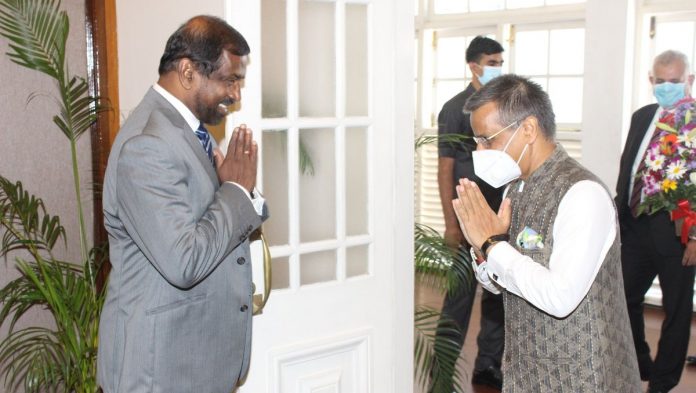
Sri Lanka's Foreign Secretary Admiral (Prof.) Jayanath Colombage meets with Indian High Commissioner Gopal Baglay in Colombo. Photograph
(Twitter/ MFA_Sri Lanka)
Foreign policy analysts observed that they are yet to come across a country that purports, so ridiculously, to put another country's interests "first" in its foreign policy. Who exactly does the Foreign Secretary intend to deceive with this empty flatulent slogan? Perhaps the President – a former US citizen and Trump admirer – got a bright idea from "America First," and directed his Foreign Secretary to adopt it with a unique twist!
An empty flatulent slogan only demonstrates duplicity; not a genuine commitment towards promoting long-term bilateral security interests with the country’s most important external diplomatic partner.
It is a poor concealment of the fact that an extra-regional power that best-guarantees “regime security” (i.e., China) remains the regime’s natural choice at the expense of all else. That card is played close to the regime’s chest with considerable duplicity.
"Neutral" and "Non-aligned”
Was the Foreign Secretary demonstrating these very principles when he spiritedly and passionately – with amateur zeal – defended China over accusations of human rights violations in Xinjiang in particular? He went to great lengths in this regard in an interview claiming that he had visited Xinjiang, courtesy the Chinese Government.
Is this neutrality and nonalignment evident when Sri Lanka’s Right-wing ruling party – in a country with a long tradition of democratic governance which it shares with its main neighbour – openly and blatantly declares that it considers the Chinese Communist Party its role-model? Attempting to import authoritarian tendencies/practices while cultivating questionable military and strategic economic ties, with implications for regional security and stability, only runs counter to long-standing balanced bilateral relations with China. Such amateur fabrications have no place in professional diplomacy. They are the province of simpletons and village idiots!
Exhaustively wearing out the term “strategic,” the Foreign Secretary chooses to spew jargon – “strategic competition,” “strategic convergence,” “strategic dilemma,” and "strategic chaos," – to describe “insecurity” in the Indian Ocean. He does so in a sensational manner unbecoming of a professional and responsible Foreign Secretary.
Is he so desperate to prove that Sri Lanka's security is imperilled to such an extent, by great power rivalry, that it is running out of options? What exactly is the real source of “insecurity” for Sri Lanka? Has he no clue that his political master’s regime security project which invites disproportionate influence from an extra-regional power – alien to the region’s democratic political culture, however flawed it may be – would prove destabilising?
Contrary to what the Foreign Secretary likes the world to believe, the greatest threat to Sri Lanka’s “sovereignty,” “independence” and “autonomy” emanates not so much from great power rivalry than it does from domestic and external consequences arising from a corrosive regime security project that he tries to fancifully misrepresent to the world.
Sheltering behind jargonistic arguments of “homegrown solutions” and “strategic autonomy” while clinging to a crudely authoritarian regime security project, at the expense of human rights and democratic governance, cannot continue indefinitely without serious consequences for both state and polity. The inept and self-deceiving Foreign Secretary even takes a sarcastic swipe at some of Sri Lanka’s traditional democratic partners by asserting that they desire a “free and open Indo-Pacific” only for “likeminded liberal democracies.” Since when did cheap mockery become part of a professional Foreign Secretary’s repertoire?
The Foreign Secretary’s sarcasm over countries and their strategies, as they relate to the “Indo-Pacific,” is inept on a par with a foreign affairs parvenu. Mocking legitimate concerns based on core values upheld by liberal democracies – in the face of a revisionist power that hasn’t fully adjusted itself to a rules-based international order – is a low pedestrian act in the realm of professional diplomacy. It is clear that his contempt for legitimate concerns of traditional democracies derives from his political master’s contempt for the rule of law and democratic governance within the country. Sri Lanka is a traditional democracy – one of Asia’s oldest – which has struggled, yet managed to stay the course. A blatant and systematic regime security project that seeks to permanently undermine its democratic core values – including human rights and the rule of law – cannot be disguised before the world with a duplicitous and fanciful “homegrown solutions” argument.
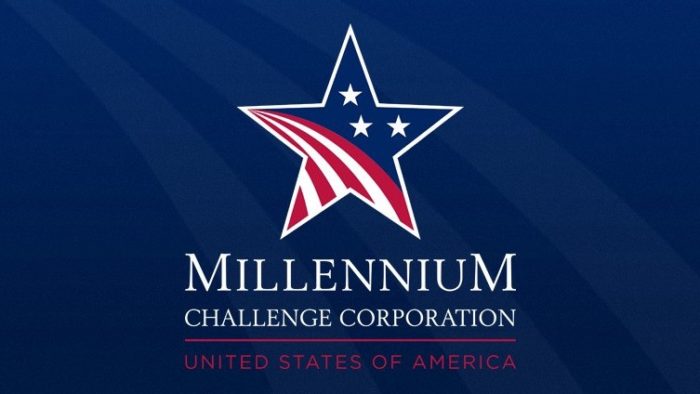
The Foreign Secretary’s assertion that the US-SL Millennium Challenge Corporation (MCC) Grant Agreement was stalled due to democratic “homegrown fear” is an outright lie. It was his master’s party, when in Opposition, that instigated a major public campaign against the Agreement with the aim of discrediting the then government.
Once in power, the President even appointed a committee, consisting of regime loyalists, to jeopardise the Agreement. Likewise, Sri Lanka’s traditional democratic partners (US, India, Japan, et al) have been insulted and embarrassed in the regime’s quest for an all-encompassing formidable external patron, protector and guarantor to secure parochial self-interests. It is a pity that China, a long-standing benevolent partner, should thus be entangled in a corrupt regime security project.
In sensational style, the Foreign Secretary claims that Sri Lanka – based on its regional strategic location – is a “football pitch,” a “chessboard” and a “punching bag” for regional and outside powers. In reality, all three assertions are only correct if applied to the current regime’s actions of creating a dominant narrative of externalised existential threats to augment its crude majoritarian domestic political schemes. It is the regime and its political Foreign Secretary who seeks to plunge professional diplomacy to the level of crude village politics, while striving to promote verbose arguments of “strategic chaos” and “insecurity” for political ends. They do so because it is the jungle that suits their animal instincts for crude political domination; certainly not civilised democratic stability, inclusive socioeconomic development and balanced foreign relations.
The Foreign Secretary's claim that Sri Lanka seeks FDI over grants rings hollow when a regime security project – characterised by widespread nepotism, misgovernance, economic mismanagement, corruption, militarisation, communalism, impunity and human rights violations – takes precedence over all else.
In his brand of pseudo-diplomacy, potential investors should ignore or disregard all such concerns as there is no better investment climate!
The “Admiral Professor” doesn’t fail to speak duplicitously of ocean pollution. His regime’s notoriety for treating all aspects of environmental security with contempt, whether they relate to mega-development projects or maritime pollution, is well known. He maintains deafening silence over what is perhaps the worst maritime pollution incident in the country’s territorial waters – the controversial “X-Press Pearl” shipping disaster, in June 2021, that resulted in oil, chemicals and microplastics spilling into the sea with devastating long-term damage to the marine environment. What else but the regime’s complicity would compel him to remain silent? And was neighbouring India’s deployment of specialised naval assets to help limit the disaster indicative of “strategic chaos” and “insecurity” – not to mention an array of other sensational jargonistic drivel – that the FS is prone to sensationally hype?
All indications are that the regime’s mission for the “Admiral Professor,” dystopian as it would appear, is to scuttle the already battered and limping ship of professional diplomacy once and for all. Having achieved that, a truly servile brand of regime-based political diplomacy could be formalised in the interest of “strategic” regime security.

